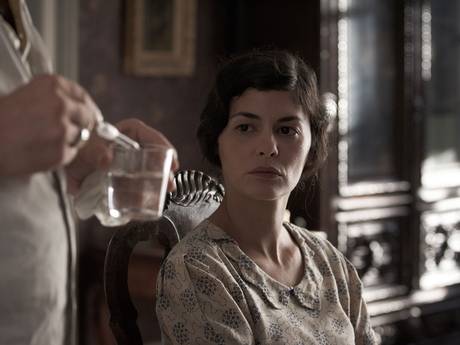Thérèse

Shot while he was undergoing radiation for the cancer that would eventually kill him, the final film from Claude Miller (A Secret) also deals with illness—both real and imagined, physical and mental.
Audrey Tautou stars as the title character in this adaptation of François Mauriac’s 1927 novel, Thérèse Desqueyroux, as a provincial housewife in the pine-swept country of southwestern France. She fancies herself worldly because of all the books she reads and approaches her marriage to Bernard (Gilles Lellouche), heir to another wealthy landowner, pragmatically: “I’m marrying you for your pines, too,” she says during their courtship.
Miller and co-writer Natalie Carter’s script gets a little heavy-handed conveying Thérèse’s intellect. Her in-laws complain that she has too many ideas, she “thinks too much,” she’s “too strong-minded,” with few examples to back it up other than her casual bookishness. Thérèse herself hopes that “Marriage will save me,” but just when you’re throwing up a bit in your mouth, it becomes clear that this is the point: Marriage won’t save her. Unfortunately, she has to make profound sacrifices to learn this for herself.
-

-

-

-

-

-

-

-

-

-

-

-

-

-

-

-

-

-

-

-

-

-

-

-

-

-

-

-

-

-

-

-

-

-

-

-

-

-

-

-








































